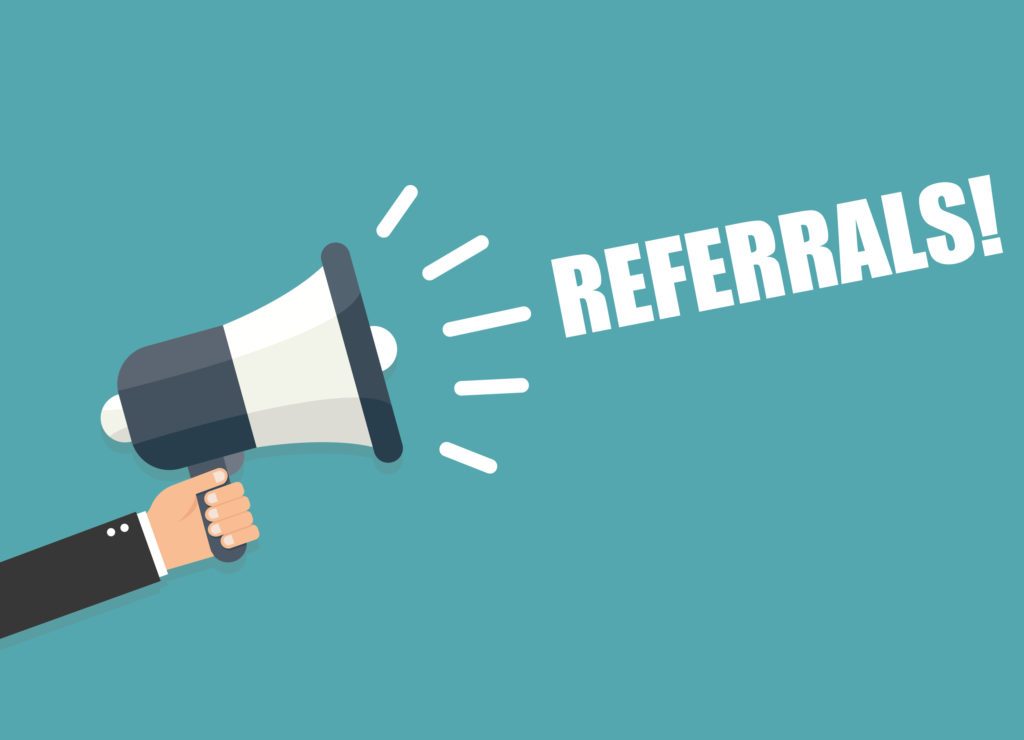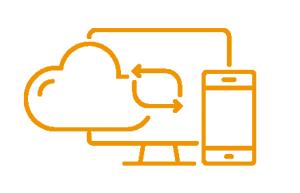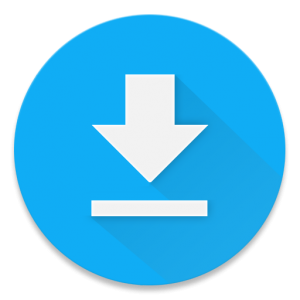How to get more sales referrals from your current customers
Want more, higher quality customers with a lot less effort than it takes to do cold outbound sales or inbound marketing? Use this simple referral sales system to grow your business starting today.
One of the most valuable sources of quality sales leads is right in front of you: your existing customers. While everyone nods their head in agreement when I say this, very few companies do referral sales effectively.
Referral sales can be your #1 source of new hot leads and turn into a massive growth engine for you—if you do it right.
What is referral selling?
Referral selling is simply asking your current customers to refer your product to another company. You leverage the trust you’ve built with your customer, and the trust your customer has with the other company to open up a sales conversation. These sales leads typically have a much higher closing rate than sales leads you generate through other lead gen methods.
Why are referral leads better?
No outbound lead you could ever generate in any other form will ever have the same quality as referral leads. There are two levels of quality:
- Your best customers will most likely know others who run very similar businesses, which means they are highly qualified leads for your company.
- You are being introduced to them via a friend and have the benefit of trust right at the start of the relationship.
Are referral leads still considered outbound leads?
Yes, they are. They were introduced to you, which is the warmest form of outbound sales you could ever do.
However, it’s still reaching out to someone who didn’t come to you in the first place. If you’re thinking of doing outbound sales, you might as well start at the warmest point possible.
Why are so many salespeople doing referral sales wrong?
Because it’s scary to ask for more once you close a deal. Salespeople worry that they might jeopardize a deal, or that it’ll turn a positive conversation awkward. They’re concerned that adding another ask can come across as too pushy, and instead to decide to follow up with a referral request sometime later. But the best time to ask for a referral is indeed just after you closed the deal.
Go where others are afraid to go and you’ll find massive opportunity. Don’t let fear get in the way of winning.
When is the best time to ask for a referral?
Right after somebody made a purchase.
Don’t wait until customers have been around for months. That’s fine, but it’s also a waste of time.
Once someone decides to buy, they are likely to be convinced enough to tell others about it. You should take advantage of this moment to grow your business faster. If they then tell you that they want to make use of the product first before recommending it to others, graciously accept that. But I can tell you from first-hand experience, that a significant part of new customers will give you referrals right after they bought. And if you’re not asking for it, you won’t get it.
The way most salespeople try referrals
They ask for a referral, the client says, “Yeah, let me think about it and get back to you later.” The salesperson replies, “Okay, thanks!” rather than pushing a bit further.
The right way to do referral sales
- Ask for a referral.
- Anticipate the no (or “I’ll think about it.”). Ask one more time right, then and there.
- Make sure to give them an email template and make it easy and frictionless to actually make the introduction.
- After you’ve closed a referral, make sure that your new customer thanks the person who introduced you, so you’re closing the feedback loop in a positive way (inspiring more referrals from the original referrer).
Referral sales script
You: “Are you happy that you chose our product?”
Customer: “Yes.”
You: “Great. Who else do you know who could benefit from a solution like ours?”
Customer: “Hmm … I’m going to think about this later and get back to you.”
You: “I appreciate that, and I’m sure that over the months and years as you benefit more and more, we’re going to get lots of referrals from you, which is going to be awesome. Today, let’s take a minute right now and think about just one friend who is in a similar position and would really benefit from this.”

Some will tell you “no” in a slightly more annoyed way. That’s ok. Just tell them “Okay, I respect that, I will follow up in an email, I really appreciate that you are offering your help.” And just leave it at that.
Some will give you one or more names just because you pushed one more time (my experience has been that 40% of people will give you referrals after the second ask).
Write those names down and tell them: “Great, thank you. I want to make it as easy as possible for you to make that introduction. So you’ll get an intro email from me. Just copy and paste it, and send it to Bob and Steve. Feel free to make edits or write something yourself, if you like. Let’s make this happen today!”
After you close a referral
When you sign somebody up who was referred to you, ask them: “Who is actually responsible for you getting all these benefits from becoming a customer of our product?”
Many times, you will get a response like: “Uhm … who? You mean … you?” And then you say: “No, the person who introduced us in the first place …”
“Oh, yeah, Bob!” Here’s what you tell them, and it’s very important that you do this: “Do you mind doing me a favor and sending Bob a quick thank you email that he made a connection between us, so he knows that you appreciate it?”
The moment they send Bob the thank you email, you’re closing the feedback loop, which will likely inspire Bob to make more referrals. The first thing Bob thinks when he gets that email is: “Oh great, they found my recommendation valuable. Who else do I know?”
Everybody wants to make successful connections and help others discover something they are grateful for. If you treat referral sales as a separate product that gets the same, if not more, attention from your sales team, you’ll see an ever growing amount of new very high-quality outbound leads.
Make referrals part of every deal
Once you’ve seen success with referral sales, you should make it part of the experience of buying your product and service upfront.
After you had the initial meetings and everything looks like the prospect is going to buy, try saying this:
You: “It seems like we’re a great fit. I’m excited. Before we go any further exploring a potential deal, I want to bring up that we’re fully focused on building world class technology and on servicing and supporting our customers to massive success. What that means is that we’re not investing in marketing and sales as heavily because our happy customers are referring us to others who could benefit from our product. Does that sound like a fair arrangement to you?”

Prospect: “Yes, that sounds fair.”
Referral sales: The warm outbound lead generation growth engine
I’ve taught this system to hundreds of founders and thousands of sales professionals, and many have implemented it to great success. But I have to warn you—it takes conviction to keep asking for referrals even if people say no at first.
It takes patience to ask again after someone fully rejects it. Just like anything in sales, you need the emotional stability to go on as you face failure in the early days.
If you can do that, you’ll start a growth engine for your company that’s going to support scaling sales for many years to come!
What about referral incentives?
I’ve found that in B2B, unlike in eCommerce, you often don’t need to pay for referrals—people like to refer a product when they feel like they are providing value to their network without any selfish incentives.
Once in a while, a customer will ask for it—if they do, you can offer a discount or a straight up referral fee.
Now if you actually build a formal referral or affiliate program, that obviously changes things—you then want to offer incentives.





